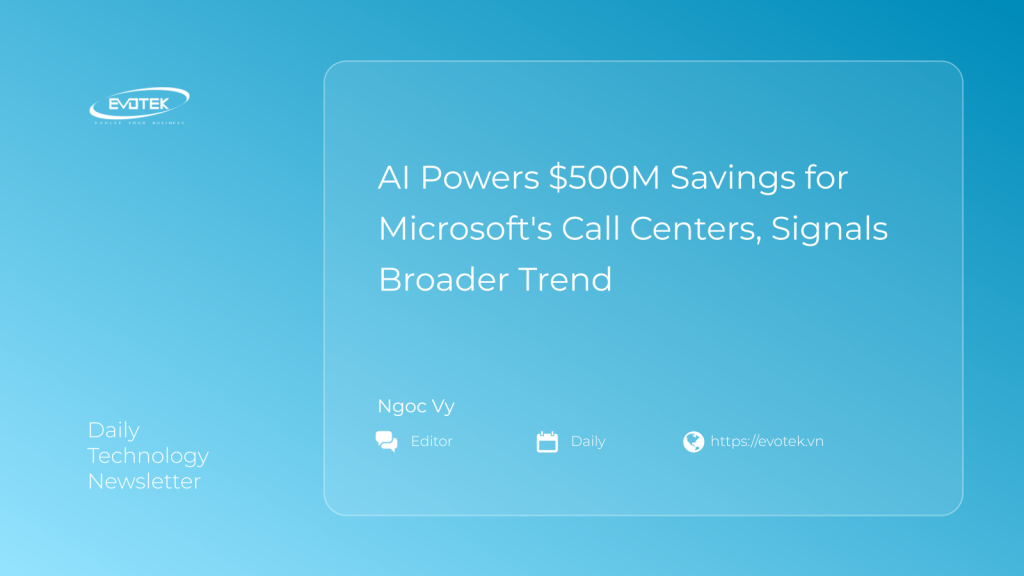Microsoft achieved over $500 million in cost efficiencies last year, primarily by integrating artificial intelligence (AI) across various critical business operations. This significant financial benefit was recently disclosed by a senior executive within the tech giant.
Judson Althoff, Microsoft’s Chief Commercial Officer, revealed these impressive figures during a recent presentation, as reported by Bloomberg. Althoff highlighted AI’s role in boosting productivity across diverse segments including software engineering, customer service, and sales. A substantial portion of these savings, notably, stemmed from optimizations within Microsoft’s extensive call center operations, though specific breakdowns for other areas remain undisclosed.
Inside sources, speaking to Bloomberg, indicated that AI tools have simultaneously enhanced employee efficiency and elevated customer satisfaction, particularly when managing interactions with smaller client accounts. In the sales division, AI has proven equally transformative. Althoff specifically mentioned how AI, notably through the company’s Copilot AI assistant, empowers sales professionals to be more effective. This technology aids staff in identifying promising leads, accelerating deal closures, and has reportedly contributed to an approximate 9% increase in revenue generation.
AI’s Dual Impact: Savings Amidst Layoffs
These revelations about AI-driven savings emerge amidst a challenging period for Microsoft’s public relations, following recent announcements of significant workforce reductions. The tech giant is reportedly implementing layoffs impacting approximately 9,000 employees globally, adding to previous rounds this year, including 6,000 staff just two months prior. These cuts, heavily affecting software engineers and staff at the Redmond headquarters, have drawn controversy.
Notably, a senior executive from Xbox Game Studios, Matt Turnbull, drew criticism for a LinkedIn post advising laid-off staff to use AI to cope with the “emotional and cognitive load” of job losses, an insensitive comment given the context of AI’s increasing role in workforce automation.
The Broader Landscape: AI’s Effect on the Labor Market
Microsoft’s candid disclosure arrives as widespread concerns intensify regarding generative AI’s broader implications for the global labor market. Experts and researchers have increasingly cautioned that this burgeoning technology could significantly disrupt entry-level positions across numerous sectors. For professionals within the tech industry, the accelerating adoption of AI is indeed ringing alarm bells, and these anxieties appear well-founded.
Companies like Salesforce, for instance, have reported that a substantial 30% of their internal operations are now managed by AI. The CRM leader has also been promoting its ‘Agentforce’ service, enabling enterprise clients to deploy automated AI agents for tasks traditionally performed by human employees. Studies indicate that customer service and contact center roles are particularly vulnerable to agentic AI, with human resources and even software development positions also facing potential shifts.
Echoing these sentiments, Meta CEO Mark Zuckerberg speculated in January that AI could be handling the work of mid-level engineers within the coming year. Similarly, Salesforce CEO Marc Benioff has hinted at a potential slowdown in hiring new software engineers, attributing it to the internal success of their agentic AI implementations.
These developments underscore a pivotal moment where AI transitions from a theoretical concept to a tangible force, driving efficiency and cost savings at an unprecedented scale, while simultaneously reshaping the future of work across industries.

 日本語
日本語 한국어
한국어 Tiếng Việt
Tiếng Việt 简体中文
简体中文